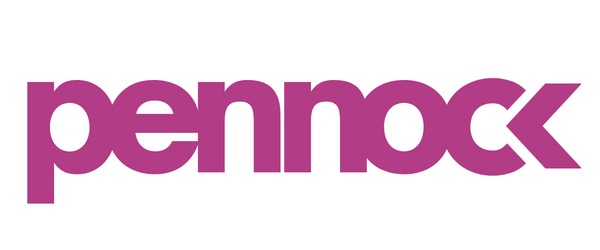The Pennock Knockdown Ep 19 | Building Beauty Brands with Heart: Insights from Anthony Standifer of mSEED Group
Redefining Contract Manufacturing in Beauty
The beauty industry is buzzing with innovation and entrepreneurial energy. Yet, for many aspiring founders, the leap from kitchen-batched formulations to a scalable product line can feel insurmountable. On the latest episode of The Pennock Knockdown host Nikki sits down with Anthony Standifer, co-founder and Chief Marketing Officer of mSEED Group, to unpack the unique hurdles facing emerging beauty brands—and how mSEED Group is changing the game for new and growing brands.
From Corporate Brand Manager to Collaborative Manufacturer
Anthony Standifer’s journey into manufacturing is unconventional but deeply relevant to any beauty founder. With 25 years in the industry—15 as a brand manager and marketer, mostly at Revlon—Anthony witnessed firsthand the challenges of launching new products from within the walls of big multinational corporations. His pivot came when he co-founded mSEED Group, a contract manufacturing facility in Chicagoland, born out of a vision to support small businesses and entrepreneurs in beauty.
Anthony's experience managing mass brands gave him insights into every facet of launching a beauty product, but running mSEED Group offered a different perspective: “Owning and actually being the manufacturer gave it a definite new spin,” he shares. Now, his role is all about providing guidance to indie founders, blending business acumen with empathy for the rollercoaster journey these entrepreneurs face.
Lowering the Barriers: Customization and Small-Batch Opportunities
Traditionally, contract manufacturing has put up daunting barriers to entry—think minimums of 10,000 or even 25,000 units, with correspondingly high cash requirements. For self-funded entrepreneurs (the majority in this space), that meant dreams stalled before they could take off.
mSEED Group takes a different approach: accepting minimum runs as small as 500 units, offering custom formulations, and treating emerging brands as true partners rather than transactional customers. “Lowering the barrier of entry was super important to us,” explains Anthony. Rather than pushing private-label formulas, mSEED Group’s model is centered on customization—100% of their clients have custom formulas, no matter the size of their order.
This dual commitment to low-volume production and bespoke formulations is what sets mSEED Group apart in an industry known for go-big-or-go-home minimums.
The Power of Partnership: Beyond Just Bottles
Anthony is quick to point out that manufacturing isn’t just about filling jars and shipping boxes. mSEED Group strives to be a resource and advisor for clients—especially first-timers navigating the daunting worlds of chemistry, branding, and retail partnerships. Referrals and word of mouth drive business, with many clients coming through industry connections or finding Anthony on social channels.
Their ethos is woven into their name: “The M in mSEED stands for ‘mustard’—as in mustard seed,” Anthony reveals, referencing the concept of moving mountains with just a tiny bit of faith. “We wanted to align ourselves with those taking a leap of faith, whether they share our faith background or not. It’s about encouraging people to make their things happen.”
Formulations, Trends, and Market Realities
On the technical side, Anthony discussed the ongoing evolution in clean beauty. With “clean” remaining an unregulated term, brands and formulators often navigate a labyrinth of retailer-specific standards and ingredient wish lists. There are also trade-offs—especially when it comes to matching the functional performance of non-clean ingredients, such as in heat protectant hair serums.
In these collaborations, education is essential. Founders are frequently steered to balance aspiration with practicality, whether that’s about the true cost of using high-end ingredients or the realities of providing a distinct customer experience in packaging and branding.
Branding, Aesthetics, and Customer Connection
Anthony’s advice isn’t just about what’s inside the bottle. He warns that aesthetics, packaging, and customer experience matter as much—if not more—than formulation when it comes to creating shelf presence, especially for those aiming for retailers like Ulta or Nordstrom. “You’ve got to be prepared to compete against the big boys and girls,” he urges.
And when feedback comes in—whether through surveys, emails, or ideally, personal conversations with those first 500 customers—listening and acting quickly can make the difference between a flash-in-the-pan launch and a lasting brand.
Faith, Flexibility, and Founders First
mSEED Group’s model is a breath of fresh air in the often intimidating world of beauty manufacturing. By prioritizing accessibility, education, and genuine partnership, Anthony Standifer and his team are helping new founders turn their mustard seeds of inspiration into thriving beauty businesses.
For anyone ready to take the leap into beauty entrepreneurship, the message is clear: You don’t have to go it alone, and your big dreams deserve a partner who’s as invested as you are.
